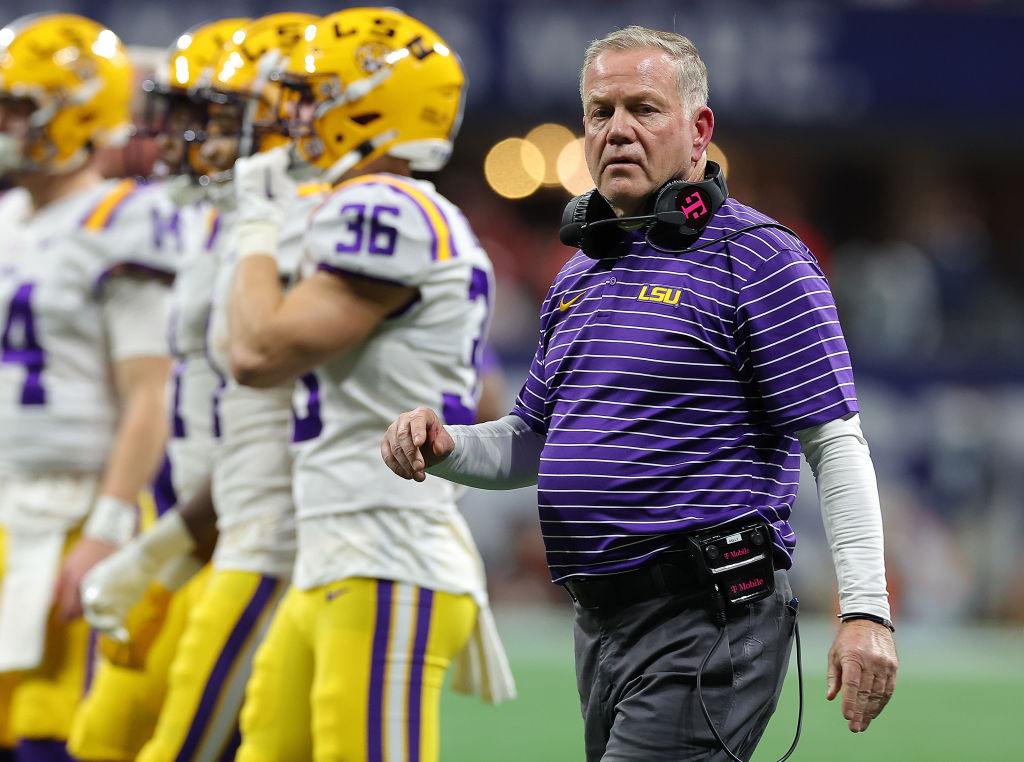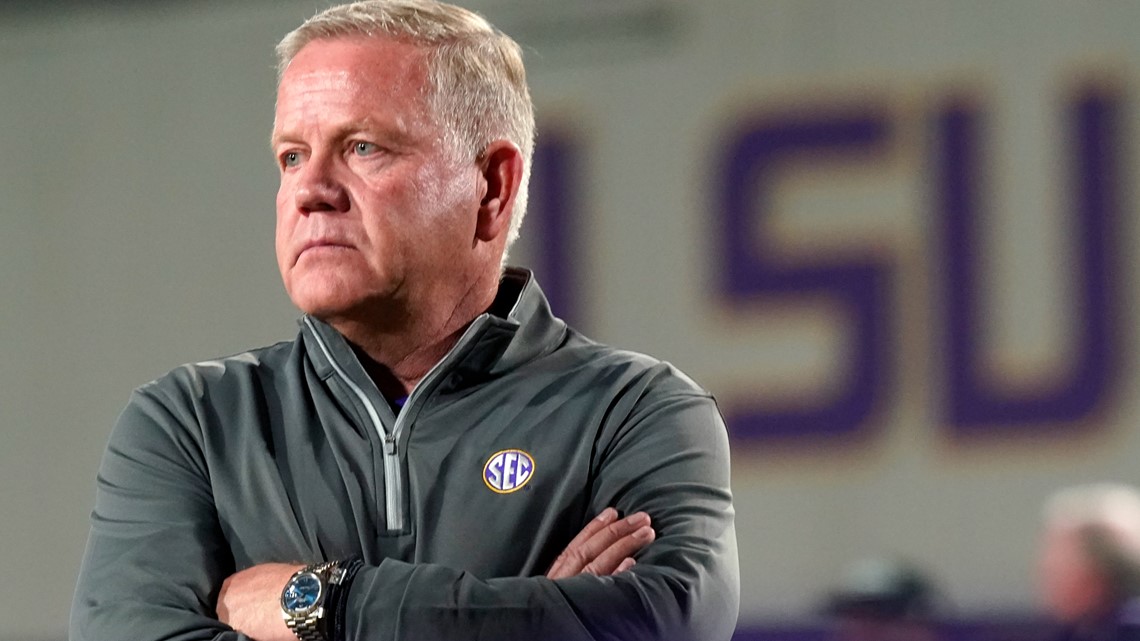
ATLANTA, GEORGIA - DECEMBER 03: Head coach Brian Kelly of the LSU Tigers against the Georgia Bulldogs during the SEC Championship at Mercedes-Benz Stadium on December 03, 2022 in Atlanta, Georgia. (Photo by Kevin C. Cox/Getty Images)
‘Leadership Isn’t a Popularity Contest’: LSU Mentor Sparks Outrage with Controversial Leadership Advice, Divides Student Body
In a university environment where collaboration and inclusivity are often celebrated, a statement from LSU Football Head Coach Brian Kelly has sparked a firestorm of controversy. During a recent campus leadership seminar, Kelly declared, “Leadership isn’t a popularity contest. If you want to be popular, sell ice cream.” While some applauded his no-nonsense approach, others were left questioning the implications of such a perspective on leadership.
The Controversial Advice
Kelly’s comment, intended to emphasize the challenging nature of true leadership, was meant to convey that leaders often have to make difficult, unpopular decisions for the greater good of the organization. Drawing from his extensive experience as a football coach, Kelly highlighted how his role involves not just strategy and play-calling, but also the tough, often thankless task of making decisions that benefit the team as a whole, even if they upset individuals in the short term.
“Leadership is about driving excellence, not winning over everyone,” Kelly explained. His assertion reflects a philosophy rooted in results-driven leadership, where the ultimate goal is success and growth, not universal approval. Kelly’s track record as a coach, particularly his success with LSU and his previous tenure at Notre Dame, supports his approach. He’s a leader who values outcomes over optics, which, in his view, sometimes requires making decisions that aren’t popular.
The Outrage and Division
However, the straightforwardness of Kelly’s statement didn’t sit well with everyone. Many students and faculty members took issue with what they perceived as a dismissive attitude toward the importance of empathy and inclusivity in leadership. Critics argue that in a university setting, where diverse perspectives and collaboration are key, the idea that leadership should disregard popularity could alienate those who feel their voices are being ignored.

“The statement undermines the value of building consensus and fostering a positive, inclusive environment,” said one student leader. “Being a leader isn’t just about making the tough calls—it’s also about bringing people together and ensuring everyone feels heard and valued.”
This sentiment was echoed by several faculty members who felt that Kelly’s approach might be too harsh for an academic setting. “While I understand where Coach Kelly is coming from, we have to recognize that leadership in education and leadership in sports are different,” remarked a professor of leadership studies. “In the classroom and in student organizations, we should strive to create environments where leadership is about lifting everyone up, not just pushing a vision forward at all costs.”
Support for Kelly’s Perspective
Despite the backlash, there’s a significant portion of the LSU community that supports Kelly’s viewpoint. Supporters argue that leadership often involves making tough, unpopular decisions that are necessary for the success of the organization. They believe that Kelly’s approach is realistic and prepares students for the harsh realities of leadership in the real world.
“Coach Kelly is right—leadership isn’t about being liked; it’s about doing what needs to be done,” said a member of the LSU football team. “In the end, results are what matter. You can’t always make everyone happy, and trying to do so can lead to failure.”
This divide reflects a broader debate on campus about what qualities make for effective leadership. While some prioritize empathy, inclusivity, and collaboration, others argue that decisiveness and a focus on results are equally important.
Broader Implications
The controversy surrounding Kelly’s comments has sparked a larger conversation at LSU about the nature of leadership and the different approaches that can be taken. The debate touches on fundamental questions: Should leaders prioritize being liked, or should they focus on making the tough calls necessary for success? Is it possible to do both?
For Kelly, the answer seems clear. Drawing from his experience in high-stakes environments where the margin for error is slim, he believes that leadership requires a focus on excellence and a willingness to make unpopular decisions if they are in the best interest of the team. However, the backlash he’s faced suggests that this approach might not resonate with everyone, particularly in a university setting where different values and priorities may come into play.
Conclusion
As the dust settles from Kelly’s controversial remarks, LSU is left grappling with the broader implications of his leadership philosophy. While his emphasis on results and tough decision-making has found support, it has also highlighted the challenges of applying a one-size-fits-all approach to leadership. The debate over what makes a good leader—whether it’s popularity, results, or a balance of both—continues to resonate on campus, reflecting the complexities and nuances of leadership in today’s world.
In the end, Kelly’s statement may serve as a catalyst for deeper discussions about leadership at LSU and beyond, challenging students and faculty alike to consider what it truly means to lead.





